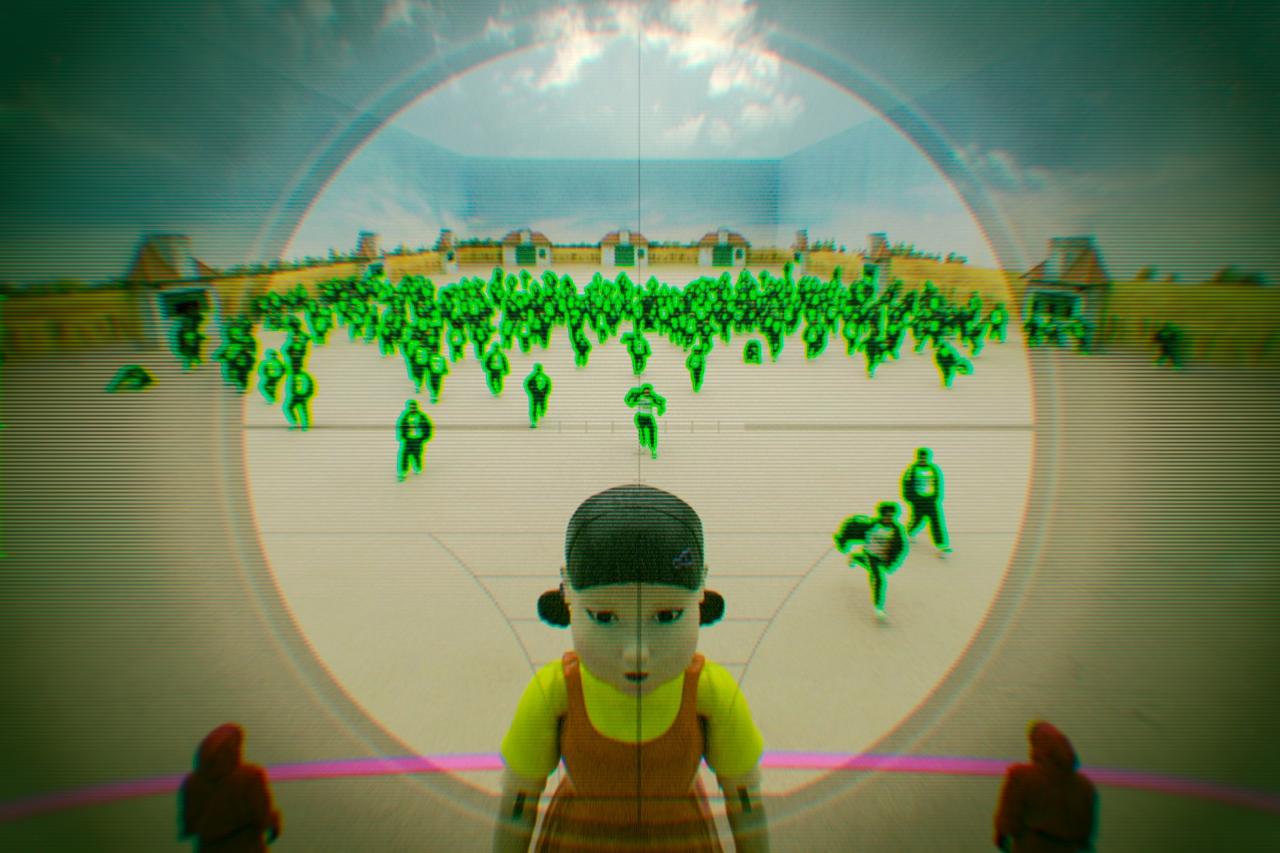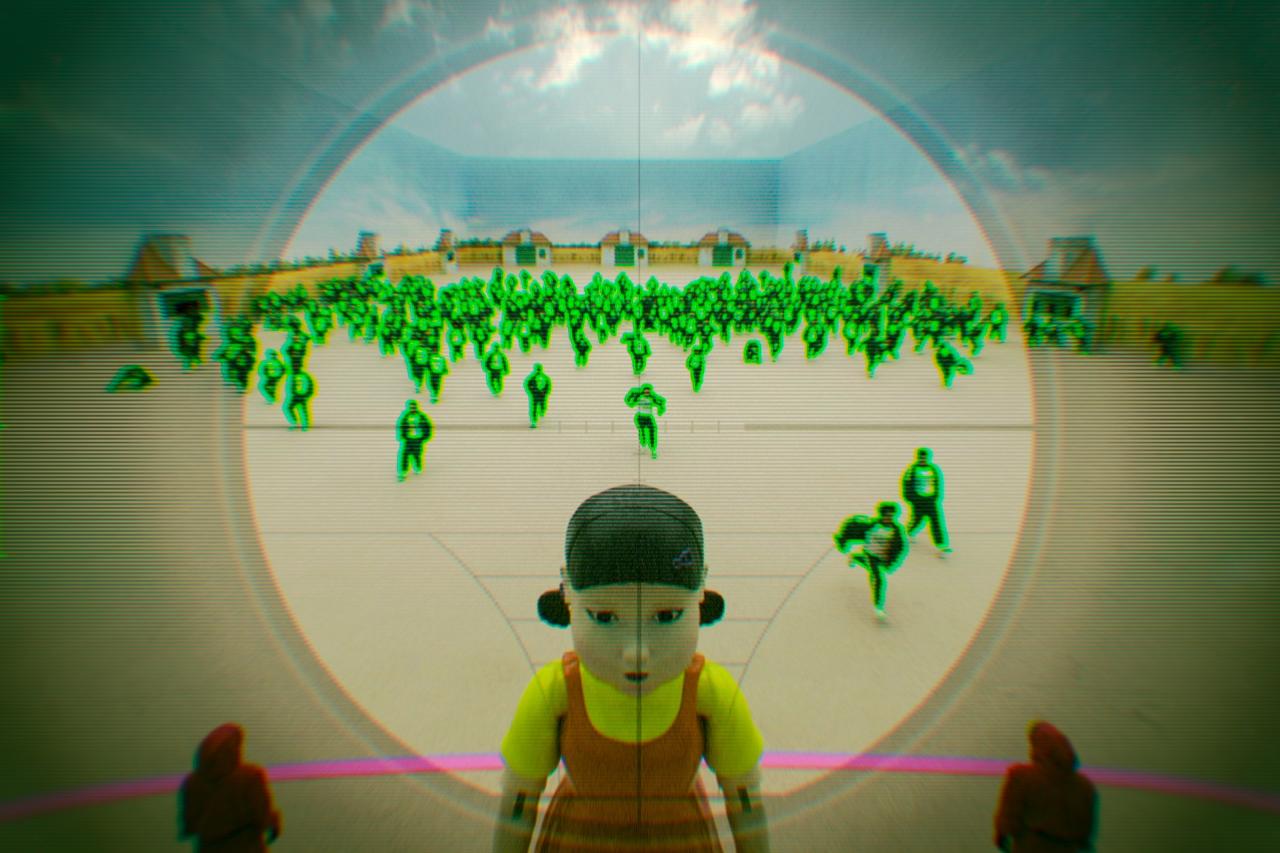Squid Game Histoire Vraie? Is the wildly popular Netflix show a complete fabrication, or does it reflect harsh realities? This exploration delves into the socio-economic conditions in South Korea that inspired the show’s brutal games and desperate characters. We’ll examine the real-life parallels between the show’s deadly competitions and traditional Korean children’s games, exploring the debt crisis and economic inequality that fuel the narrative.
Prepare to uncover the unsettling truths behind the fictionalized violence.
We’ll investigate the stark realities of extreme poverty globally, comparing the show’s depiction of desperation to real-world survival struggles. We’ll also analyze the psychological impact of high-stakes competition and the societal commentary woven into Squid Game’s narrative, examining its critique of capitalism and consumerism. Get ready for a deeper understanding of the show’s unsettling message.
The Inspiration Behind “Squid Game”
The global phenomenon that is “Squid Game” didn’t appear out of thin air. Its stark portrayal of debt, desperation, and societal inequality is deeply rooted in the realities of South Korean society. The show masterfully blends fictional elements with real-life societal pressures, creating a compelling and disturbingly relatable narrative.
Socio-Economic Conditions in South Korea
South Korea’s rapid economic growth has been accompanied by significant disparities in wealth distribution. A highly competitive job market, coupled with the pressure to achieve social status, contributes to immense financial stress for many. The “Hell Joseon” (헬조선) meme, prevalent in South Korean online culture, reflects widespread disillusionment with the country’s socioeconomic structure and the perceived lack of upward mobility.
Traditional Korean Children’s Games and Their Parallels
The games featured in “Squid Game,” while deadly in the show’s context, are based on traditional Korean children’s games. This juxtaposition of innocent childhood pastimes with life-or-death stakes underscores the show’s central theme: the brutal consequences of extreme economic pressure. The familiarity of the games makes the violence all the more shocking and impactful.
Historical Events and Social Issues
While no single event directly inspired “Squid Game,” the show reflects broader anxieties surrounding South Korea’s economic history. The rapid industrialization and subsequent financial crises have left many vulnerable to debt traps. The show’s depiction of a stratified society, where the wealthy elite are oblivious to the struggles of the impoverished masses, resonates with real-world societal divisions.
Comparison of Depicted and Real-Life Debt Crises
The debt crisis portrayed in “Squid Game” mirrors the challenges faced by many South Koreans struggling under the weight of personal loans, student debt, and other financial burdens. The show exaggerates the consequences for dramatic effect, but the underlying anxieties regarding debt and its potential to ruin lives are deeply relatable to the South Korean experience.
Debt and Economic Inequality in South Korea: Squid Game Histoire Vraie
Understanding the socio-economic landscape of South Korea is crucial to comprehending the resonance of “Squid Game.” The show’s themes are not simply fictional constructs; they reflect a complex interplay of economic factors, societal pressures, and cultural norms.
Statistical Overview of Income Inequality and Debt Levels
South Korea consistently ranks high in terms of income inequality among OECD countries. Data from the OECD and the Bank of Korea reveal a significant gap between the wealthiest and poorest segments of the population. Similarly, household debt levels remain a significant concern, impacting individual financial stability and overall economic growth. Precise figures fluctuate, and accessing and interpreting real-time data requires referring to official sources like the Bank of Korea’s publications.
Real-Life Stories of Individuals Struggling with Debt
Numerous news reports and personal accounts detail the struggles of South Koreans overwhelmed by debt. These stories often highlight the devastating impact of debt on families, relationships, and mental health. Many individuals find themselves trapped in a cycle of debt, with high-interest loans and limited access to resources for debt relief. These narratives often underscore the societal pressures contributing to this situation.
Societal Pressures and Cultural Factors Contributing to High Debt Levels

The emphasis on education, career success, and maintaining a certain lifestyle contributes to high levels of consumer debt. The pressure to conform to societal expectations, coupled with limited social safety nets, often pushes individuals to take on more debt than they can manage. Cultural norms surrounding debt and financial responsibility also play a role in shaping individual behaviors and decision-making.
Government Policies and Initiatives Addressing Economic Inequality
The South Korean government has implemented various policies aimed at addressing income inequality and debt issues. These initiatives include measures to support small and medium-sized enterprises (SMEs), promote job creation, and provide debt relief programs. However, the effectiveness of these policies remains a subject of ongoing debate and requires further analysis of their impact on the ground.
The Reality of Extreme Poverty and Survival Games
While the games in “Squid Game” are fictional, they serve as a stark metaphor for the desperation and life-or-death choices faced by individuals in extreme poverty worldwide. The show’s hyper-stylized violence reflects the brutal realities of survival in desperate circumstances.
Real-World Situations Where Individuals Face Life-or-Death Choices

Examples abound in regions grappling with famine, conflict, or extreme poverty. Individuals may resort to desperate measures, such as engaging in dangerous labor or risking their lives for meager resources. These situations highlight the vulnerability of those living in poverty and the lack of opportunities available to them.
Comparison of Depicted and Real-World Violence and Desperation
The show’s depiction of violence and desperation, while amplified for dramatic effect, echoes the harsh realities faced by many in impoverished communities globally. The struggle for survival, the erosion of human dignity, and the exploitation of vulnerable individuals are common themes in these contexts.
Ethical Considerations Surrounding the Exploitation of Vulnerable Individuals
The show raises ethical questions about the exploitation of vulnerable individuals in desperate situations. It forces viewers to confront the moral implications of systems that create and perpetuate such inequalities. The show’s exaggerated scenarios highlight the ethical responsibilities of societies to protect and support their most vulnerable members.
Comparison of “Squid Game” Games to Real-World Survival Scenarios

| Squid Game Game | Real-World Parallel | Description | Ethical Considerations |
|---|---|---|---|
| Red Light, Green Light | Dangerous work conditions | Workers risking their lives for low wages, facing harsh punishments for mistakes. | Exploitation of labor, lack of worker protection |
| Honeycomb | Poverty-driven choices | Individuals making risky decisions due to lack of resources, facing dire consequences if they fail. | Lack of opportunity, societal inequalities |
| Tug-of-War | Competition for scarce resources | Groups competing fiercely for limited resources, leading to conflict and potential harm. | Zero-sum game dynamics, unequal access to resources |
| Marbles | Trust and betrayal in desperate circumstances | Individuals forming alliances and betraying each other to survive in times of scarcity and uncertainty. | Moral dilemmas, survival instinct versus ethical behavior |
The Psychological Impact of Extreme Pressure and Competition
The psychological toll of high-stakes competition and extreme pressure is a central theme in “Squid Game.” The show vividly portrays the mental and emotional breakdown experienced by individuals under immense stress.
Psychological Effects of High-Stakes Competition and Extreme Pressure
High-stakes competition can lead to heightened anxiety, stress, and even mental health issues like depression and PTSD. The pressure to succeed can trigger unhealthy coping mechanisms, such as substance abuse or risky behaviors. The constant fear of failure can severely impact an individual’s mental well-being.
Consequences of Unchecked Ambition and Pursuit of Wealth
The pursuit of wealth at any cost can lead to unethical behavior, disregard for others, and a distorted sense of self-worth. Unchecked ambition can consume individuals, blinding them to the moral implications of their actions and damaging their relationships with others.
Real-Life Cases of Individuals Succumbing to Pressure
Numerous examples exist of individuals succumbing to the pressure of extreme competition, leading to tragic consequences. High-pressure work environments, intense academic competition, and the pursuit of financial success have all been linked to mental health crises and even suicide.
Hypothetical Scenario Illustrating Psychological Breakdown
Imagine a contestant in a high-stakes competition, initially driven by the desire to alleviate their family’s financial burden. As the competition intensifies, they become increasingly desperate, resorting to manipulation and even violence to survive. The constant fear of failure, combined with the immense pressure, leads to a complete psychological breakdown, leaving them emotionally and mentally scarred.
Social Commentary and the Show’s Message
“Squid Game” serves as a powerful social commentary, critiquing aspects of capitalism, inequality, and societal structures. The show’s bleak portrayal of a hyper-competitive society compels viewers to confront uncomfortable truths about the world around them.
Social Commentary on Capitalism, Inequality, and Societal Structures
The show highlights the systemic inequalities that trap individuals in cycles of poverty and desperation. It critiques a capitalist system that prioritizes profit over human well-being, leaving vulnerable populations to fend for themselves in a brutal and unforgiving environment. The stark contrast between the wealthy elite and the impoverished masses underscores the show’s central message about social injustice.
Critique of Consumerism and the Pursuit of Material Wealth
The show criticizes the relentless pursuit of material wealth and the pressures of consumerism that contribute to societal anxieties and inequalities. The characters’ desperation to escape poverty underscores the limitations and potential pitfalls of a system that values material possessions above all else.
Reflection of Broader Anxieties and Concerns about the Future
“Squid Game” reflects widespread anxieties about economic insecurity, social inequality, and the potential for societal collapse. The show’s dystopian setting serves as a cautionary tale, highlighting the potential consequences of unchecked greed and societal indifference.
Visual Representation of Key Themes and Messages, Squid game histoire vraie
A visual representation could depict a stark contrast between two worlds: a glittering cityscape representing wealth and privilege, juxtaposed with a desolate, impoverished landscape symbolizing desperation and struggle. A central figure, caught between these two worlds, could embody the anxieties and struggles of individuals caught in the grip of systemic inequality. The overall image would be stark and unsettling, reflecting the show’s dark and powerful message.
Summary
Ultimately, “Squid Game Histoire Vraie” reveals a disturbing truth: while the show’s depiction of deadly games is fictional, the desperation and economic inequalities it portrays are very real for many around the world. The show serves as a powerful commentary on societal pressures and the human cost of unchecked ambition and extreme poverty. By exploring the inspiration behind the show and the realities it reflects, we gain a deeper understanding of the complex issues it raises and the urgent need for societal change.
Expert Answers
Did anyone die playing the games depicted in Squid Game?
No, the deadly games in Squid Game are fictional. However, the show’s themes of desperation and life-or-death choices due to poverty are tragically reflected in real-world situations.
What inspired the specific games in Squid Game?
Many of the games are based on traditional Korean children’s games, adding a layer of unsettling familiarity to the show’s violence. This juxtaposition highlights the contrast between innocent childhood memories and the brutal reality of the show’s premise.
Is South Korea’s debt crisis as extreme as depicted in Squid Game?
While not as overtly dramatic as in the show, South Korea does face significant challenges related to debt and economic inequality. The show exaggerates the situation for dramatic effect, but the underlying issues are real and impactful.
